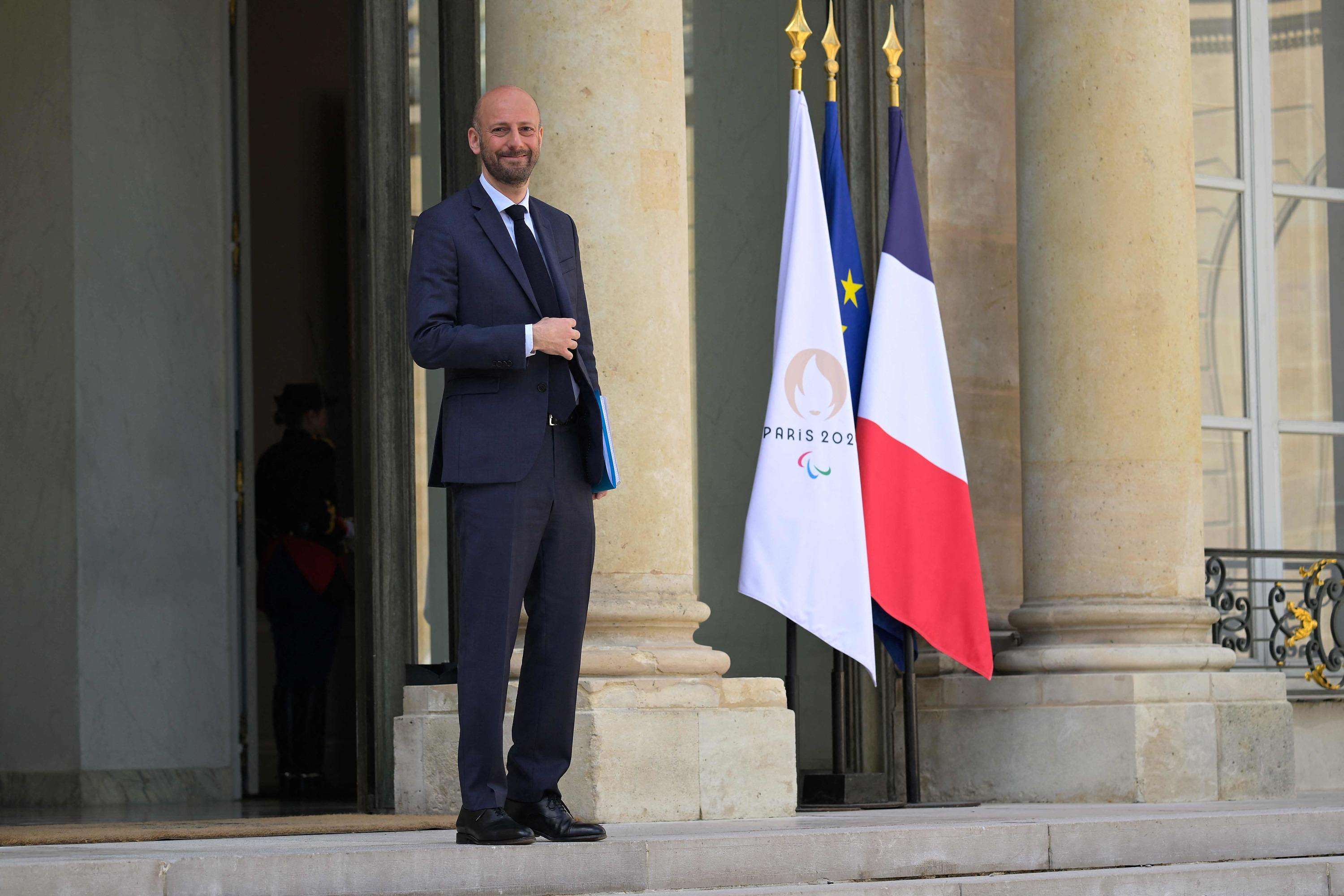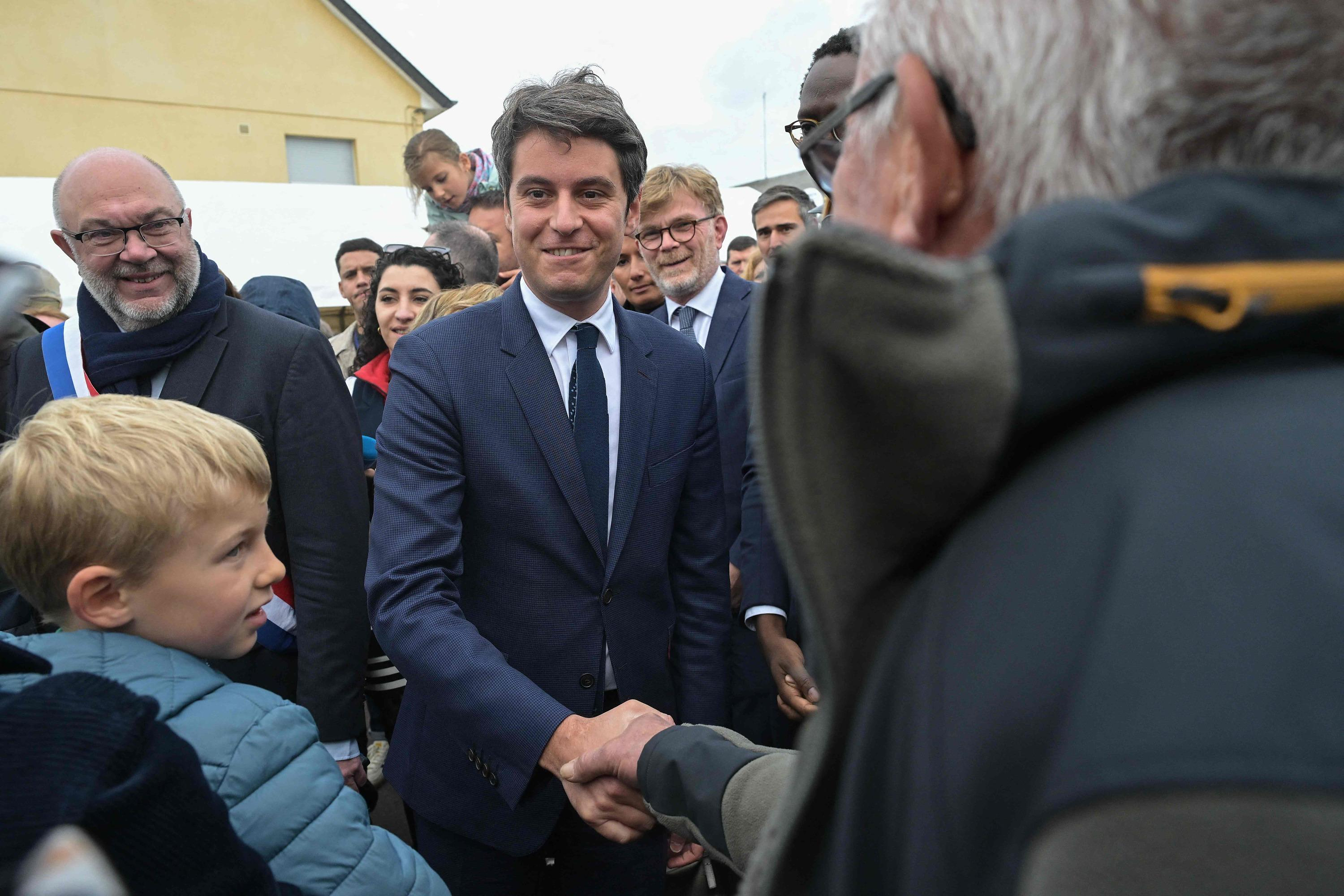Cars are driven for an average of one hour a day. According to the Federal Environment Agency, they just stand around for the remaining 23 hours, mostly on the side of the road. How else can the space be used?
Debates like this have long been held in big cities. A section of Friedrichstrasse in Berlin was closed to cars for two years in order to use the space for seating, planting and cycle paths.
Moritz Jüdes, Hans-Gert Stuke and Tim Jaudszims are also considering what can be done with sealed surfaces such as parking lots. Their idea: mobile mini offices.
"I wished for something like that when I tried to work from home - but my son made terror," says Jüdes in an interview with "Gründerszene". At the time, he wished he could retreat, even just for a few hours. Something like "Privacy On Demand." So no open-plan office and preferably right on his doorstep.
Jaudszims and Stuke liked his idea. In August 2022, the three therefore founded the start-up Tiny Space, which builds and rents six square meters of small mini offices on wheels.
The founding trio may not yet have any investors on board, but they are already dreaming big: "We want to set up several thousand houses in the next few years." Preferably in many large cities around the world.
Meanwhile in Berlin: The first prototype occupies a parking lot on Paul-Lincke-Ufer in the district of Kreuzberg. I stayed there for a few hours to see if the trailer was good to work with or if the noise from the street was too annoying.
However, I had my biggest concerns about the toilets: there aren’t any in the mini office. So you have to switch to surrounding cafes. But I know from experience that you often have to pay to use the toilet - and I didn't want to do that.
The booking was uncomplicated. I had to specify how long I would like to rent the office space. Payment is made via PayPal. One hour costs ten euros, four hours 40 euros.
I couldn't choose to stay longer because the mini offices are designed for short stays. "The idea is that people can retire for a short time, not three days at a time," says Stuke. So that everyone in the area can benefit from the mini office.
Since the launch of the prototype at the end of September, around 100 customers are said to have rented the mini office space. Among them were also people who made music. A lady played the clarinet. "She didn't want to annoy her neighbors," Jüdes continues.
On average, tenants spent around two hours on site. I maxed out the four hours for my attempt.
The Tiny Space on Paul-Lincke-Ufer is painted black on the outside - and at first glance it looks a little unassuming. Just like a small house that stands on a car trailer.
Shortly after the launch, the vehicle initially stood on the busy Hobrecht Bridge and was also sprayed with graffiti. Were Jüdes and Stuke pissed off? Rather not. "Welcome to Berlin," they say in chorus. Apparently they take the incident with humor.
They painted over the graffiti so that the focus is on the large window front, which stretches over two halves of the wall and faces the bank. During the day, i.e. in the light, it is worth looking at the green area.
However, others can also look into the Tiny Space. Many a walker even stopped to take a photo from the outside. If you don't want that, you can pull down the blinds.
However, a gap in the window facing the street cannot be covered. Personally, that disturbed my privacy. Especially when it got dark outside. What if someone is watching me?
The door to the office space can be opened and closed from the outside with a code - and also locked. The Tiny Space is equipped with everything that an office space has: a decent table, a real office chair, a stable internet connection, several sockets and an extra monitor on the wall that I can connect to my laptop with a cable.
There is also a bench. There is also space for three or four people working on their laptops. The table can be folded up so that users have more space, for example to play an instrument or do yoga exercises. The use of the space is not limited to office work.
In the coming year, for example, the founding trio is planning to rent out some Tiny Spaces to a church sponsor who wants to offer coaching and pastoral care to young adults in socially deprived areas. "With our mobile offices, it's easier to get in touch with the children in problem areas," says Jüdes.
The same can also be applied to refugee accommodation: "Parents and children can withdraw to the areas to do schoolwork or to telephone family members," says Sture.
It can definitely be endured in the mobile office. A large part of the furnishings, including the walls, are made of wood, which gives the interior a warm and homely touch. At times I almost forgot I was on a trailer.
The heater is mounted on the ceiling to save space and there is a temperature display on the wall. There I could set how warm I would like it to be. At 20 degrees Celsius, I was constantly warm and cozy.
What the mini office doesn't have is running water and a toilet. So I had to bring my own food and drink, but I knew that beforehand. Alternatively, I could also switch to cafés nearby. In the long run that would be too expensive for me.
In the same café I was also allowed to use the toilet, free of charge. The Tiny Space founders agreed that with the owners of the bistro. "Our mini offices are designed to use the local infrastructure," says Stuke, explaining the concept.
For me, however, this meant that I had to briefly leave my workplace and go outside. Before attempting it myself, I thought it would be particularly annoying.
Marching through the cold to go to the bathroom every time? In practice, the way to the café was very short, the fresh air was a welcome change from the laptop monitor and the service in the café was also friendly.
I was able to work undisturbed most of the time. I didn't hear much of the noise of passing cars. In some places I heard people's voices because they stood in front of the front door to photograph the small information board about the Tiny Space.
The Tiny Space can be parked anywhere where there are parking spaces. However, the vehicle must not be left in one place for weeks without restrictions, as it is uncoupled from the car. According to the Road Traffic Act (StVO), the Tiny Space may only occupy a parking space for two weeks at a time, otherwise fines will be due.
In order to avoid stress with the public order office in Kreuzberg, Jüdes and Stuke move their trailer back and forth a few meters every two weeks - and so far they have been successful with it.
The Tiny Space on Paul-Lincke-Ufer is currently the only mobile office space that the start-up operates. According to the founders, others are in the works and should also be in Berlin, including on the grounds of the Euref campus in Berlin-Schöneberg.
Companies and institutions settle on the property at the old gasometer to promote the energy transition.
I enjoyed working in the Tiny Space. I found it particularly beautiful when it was still light and I had a nice view outside. However, it gets dark early in December, so by 5 p.m. the blinds on the large window front were already down.
The fact that I couldn't cover the gap in the window on the other side bothered me, because theoretically someone could have been watching me. Despite the darkness, I always felt safe on the trailer because the door to the office had an electronic lock and only I had the access code to the Tiny Space.
For ten euros an hour, I think it's worth trying out the concept. You can save money especially if you get two or three friends together. This reduces the hourly costs to just a few euros.
However, I would only book the Tiny Space regularly, i.e. three or four times a week, if my employer also covered the costs. Otherwise it would be too expensive for me and I would stay in my home office or take the slightly longer way to go to the office.
"Everything on shares" is the daily stock exchange shot from the WELT business editorial team. Every morning from 7 a.m. with the financial journalists from WELT. For stock market experts and beginners. Subscribe to the podcast on Spotify, Apple Podcast, Amazon Music and Deezer. Or directly via RSS feed.

 B:SM will break its investment record this year with 62 million euros
B:SM will break its investment record this year with 62 million euros War in Ukraine: when kyiv attacks Russia with inflatable balloons loaded with explosives
War in Ukraine: when kyiv attacks Russia with inflatable balloons loaded with explosives United States: divided on the question of presidential immunity, the Supreme Court offers respite to Trump
United States: divided on the question of presidential immunity, the Supreme Court offers respite to Trump Maurizio Molinari: “the Scurati affair, a European injury”
Maurizio Molinari: “the Scurati affair, a European injury” First three cases of “native” cholera confirmed in Mayotte
First three cases of “native” cholera confirmed in Mayotte Meningitis: compulsory vaccination for babies will be extended in 2025
Meningitis: compulsory vaccination for babies will be extended in 2025 Spain is the country in the European Union with the most overqualified workers for their jobs
Spain is the country in the European Union with the most overqualified workers for their jobs Parvovirus alert, the “fifth disease” of children which has already caused the death of five babies in 2024
Parvovirus alert, the “fifth disease” of children which has already caused the death of five babies in 2024 The A13 motorway will not reopen on May 1
The A13 motorway will not reopen on May 1 More than 1,500 items for less than 1 euro: the Dutch discounter Action opens a third store in Paris
More than 1,500 items for less than 1 euro: the Dutch discounter Action opens a third store in Paris 100 million euros in loans, water storage, Ecophyto plan… New measures from the executive towards farmers
100 million euros in loans, water storage, Ecophyto plan… New measures from the executive towards farmers “He is greatly responsible”: Philippe Martinez accuses Emmanuel Macron of having raised the RN
“He is greatly responsible”: Philippe Martinez accuses Emmanuel Macron of having raised the RN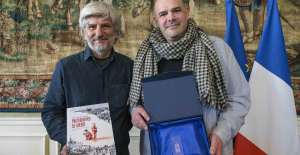 Les Galons de la BD dedicates War Photographers, a virtuoso album on the Spanish War
Les Galons de la BD dedicates War Photographers, a virtuoso album on the Spanish War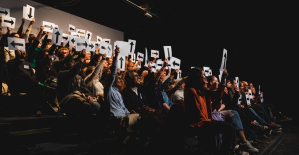 Theater: Kevin, or the example of an academic failure
Theater: Kevin, or the example of an academic failure The eye of the INA: Jean Carmet, the thirst for life of a great actor
The eye of the INA: Jean Carmet, the thirst for life of a great actor The Nuc plus ultra: St Vincent the Texane and Neil Young the return
The Nuc plus ultra: St Vincent the Texane and Neil Young the return Skoda Kodiaq 2024: a 'beast' plug-in hybrid SUV
Skoda Kodiaq 2024: a 'beast' plug-in hybrid SUV Tesla launches a new Model Y with 600 km of autonomy at a "more accessible price"
Tesla launches a new Model Y with 600 km of autonomy at a "more accessible price" The 10 best-selling cars in March 2024 in Spain: sales fall due to Easter
The 10 best-selling cars in March 2024 in Spain: sales fall due to Easter A private jet company buys more than 100 flying cars
A private jet company buys more than 100 flying cars This is how housing prices have changed in Spain in the last decade
This is how housing prices have changed in Spain in the last decade The home mortgage firm drops 10% in January and interest soars to 3.46%
The home mortgage firm drops 10% in January and interest soars to 3.46% The jewel of the Rocío de Nagüeles urbanization: a dream villa in Marbella
The jewel of the Rocío de Nagüeles urbanization: a dream villa in Marbella Rental prices grow by 7.3% in February: where does it go up and where does it go down?
Rental prices grow by 7.3% in February: where does it go up and where does it go down? Even on a mission for NATO, the Charles-de-Gaulle remains under French control, Lecornu responds to Mélenchon
Even on a mission for NATO, the Charles-de-Gaulle remains under French control, Lecornu responds to Mélenchon “Deadly Europe”, “economic decline”, immigration… What to remember from Emmanuel Macron’s speech at the Sorbonne
“Deadly Europe”, “economic decline”, immigration… What to remember from Emmanuel Macron’s speech at the Sorbonne Sale of Biogaran: The Republicans write to Emmanuel Macron
Sale of Biogaran: The Republicans write to Emmanuel Macron Europeans: “All those who claim that we don’t need Europe are liars”, criticizes Bayrou
Europeans: “All those who claim that we don’t need Europe are liars”, criticizes Bayrou These French cities that will boycott the World Cup in Qatar
These French cities that will boycott the World Cup in Qatar Paris 2024 Olympic Games: “It’s up to us to continue to honor what the Games are,” announces Estanguet
Paris 2024 Olympic Games: “It’s up to us to continue to honor what the Games are,” announces Estanguet MotoGP: Marc Marquez takes pole position in Spain
MotoGP: Marc Marquez takes pole position in Spain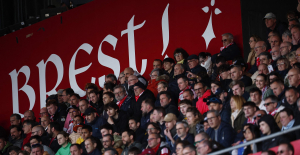 Ligue 1: Brest wants to play the European Cup at the Stade Francis-Le Blé
Ligue 1: Brest wants to play the European Cup at the Stade Francis-Le Blé Tennis: Tsitsipas released as soon as he entered the competition in Madrid
Tennis: Tsitsipas released as soon as he entered the competition in Madrid




